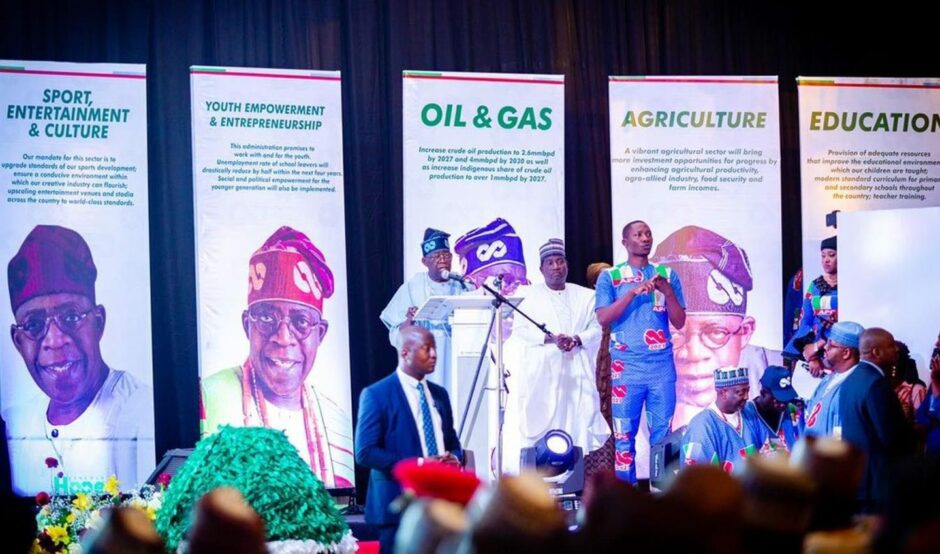
Presidential hopeful Bola Tinubu has set out his plans for Nigeria, aiming to scale up oil production and phase out the fuel subsidy.
Similar plans have been set out before, and frequently missed. Tinubu did, though, also set out a scheme to move Nigeria away from its hydrocarbon reliance.
In his manifesto, the All Progressives Congress (APC) candidate noted the budget was based on the dollar value of the projected oil revenue in a given year.
“Not only does this practice artificially restrict the federal government’s fiscal latitude, it also unduly attracts the nation’s attention towards a single source of fiscal revenue to the detriment of others,” the manifesto said.
Instead, Nigeria should base its budget on the projected level of spending, optimising growth and jobs while controlling inflation. “We must break the explicit link between naira expenditure and dollar inflows into the economy”, the statement said.
A Tinubu administration would see higher spending, the manifesto said. Suspending limits on government’s outgoings, he said, was realistic given this “protracted moment of global economic turmoil exacerbated by domestic challenges in security, economy and demography”.
A move away from an oil-based budget would also be practical given the expected changes in oil and gas consumption as the West aims to reduce consumption.
However
Nigeria should also boost production, the manifesto said. The country should target 2.6 million barrels per day of oil by 2027 and 4mn bpd by 2030. Of the 2027 target, 1mn bpd would come from indigenous producers, the document said.
The first step in Tinubu’s plan is to deter crude oil theft and tackle vandalism. A Tinubu government will establish a Special Enforcement and Monitoring Unit to protect pipelines through a variety of means.
The plans also covers new investments in the sector, in particular on frontier exploration. Tinubu said the Lake Chad Basin, in the north, was one area that would attract spending.
A Tinubu administration would also bring in “favourable policies” to attract investment in deepwater assets, with the aim of securing new plans within six months. Strategies under consideration include talks on signature bonuses or royalty relief.
Gas and subsidies
Tinubu has also said Nigeria must make progress in flaring gas and increasing use. Nigeria will press ahead with its gas projects, in addition to enforcing gas flaring penalties and providing incentives to those that curb flares.
The government would create another unit to investigate flaring and assess compliance.
Nigeria’s largest single challenge may be in the way in which all of its oil revenues are going to subsidise fuel imports.
Tinubu said his government would phase out the subsidy, but keep the underlying social contract. Cash that goes on the subsidy would instead target particular programmes, in order to better “address urgent social and economic needs”.
The government would also consider new models for refining, particularly through joint ventures with global companies.
The plans found little favour from the opposition People’s Democratic Party (PDP). The opposition called for more detail about how in particular the APC would cut subsidies.
The PDP’s Atiku Abubakar and the Labour Party’s Peter Obi have also both pledged to remove the subsidy.
There are around 120 days to go until the presidential elections.
